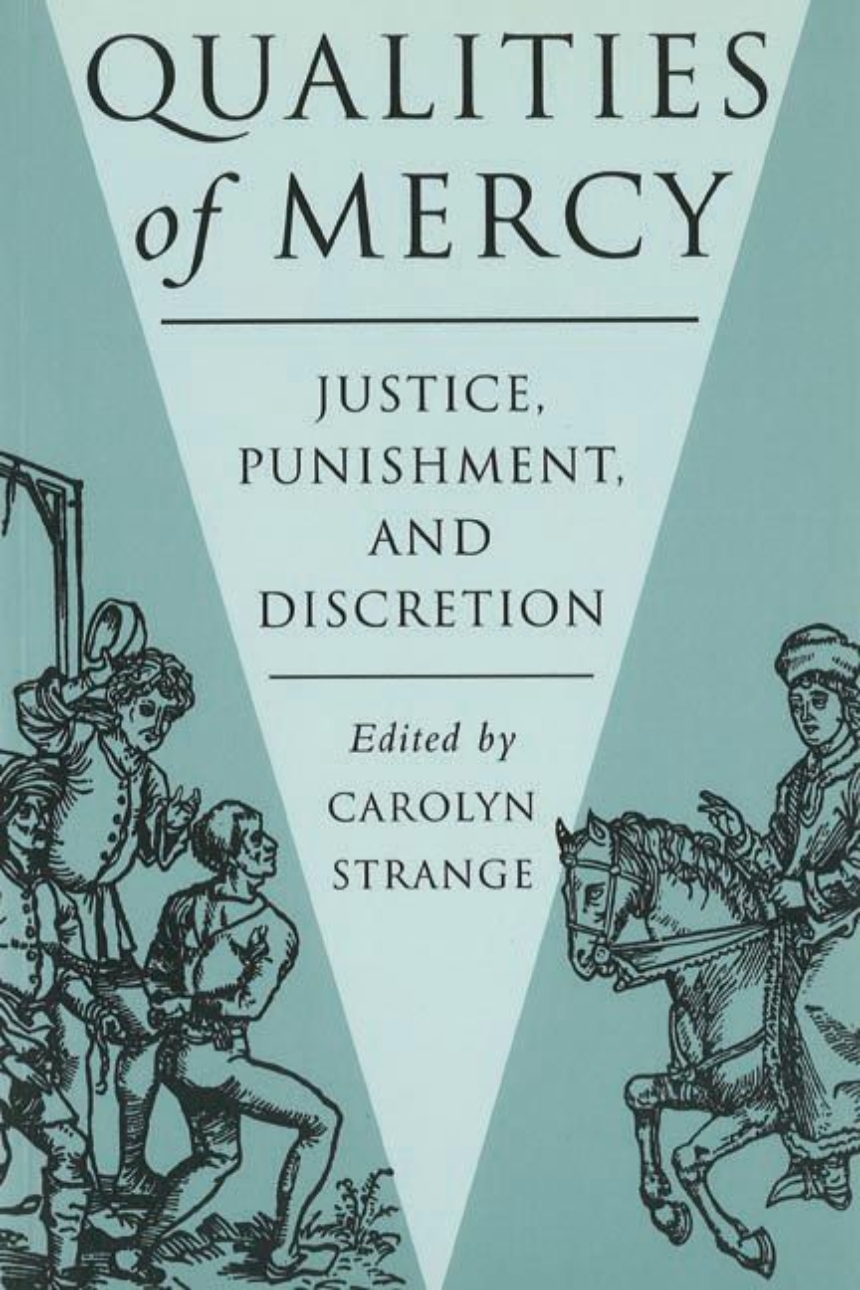Distributed for University of British Columbia Press
Qualities of Mercy
Justice, Punishment, and Discretion
Table of Contents
Foreword / Douglas Hay
Acknowledgments
Introduction / Carolyn Strange
1. Civilized People Don't Want to See That Sort of Thing: The Decline of Physical Punishment in London, 1760-1840 / Greg T. Smith
2. In Place of Death: Transportation, Penal Practices, and the English State, 1770-1830 / Simon Devereaux
3. `Harshness and Forbearance': The Politics of Pardons and the Upper Canada Rebellion / Barry Wright
4. Savage Mercy: Native Culture and the Modification of Capital Punishment in Nineteenth-Century British Columbia / Tina Loo
5. Discretionary Justice: Political Culture and the Death Penalty in New South Wales and Ontario, 1890-1920 / Carolyn Strange
Punishment in Late-Twentieth-Century Canada: An Afterword / Anthony N. Doob

